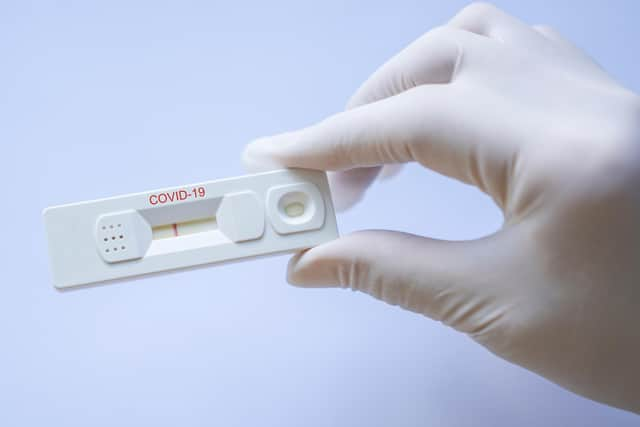Scotland bird flu: Public at risk from animal-sourced diseases but government not equipped to deal with major crises, report warns
Covid-19, monkey pox, anthrax, avian influenza, foot-and-mouth, mad cow disease, bovine tuberculosis and swine flu are some of the conditions which originate in animals, but can be transmitted to humans. These have already been seen in the UK, but there are also ongoing risks from more exotic conditions like rabies, African swine fever or even Ebola coming in from other countries.
In a damning new report, the Public Accounts Committee (PAC), which oversees UK Government spending, has highlighted the “real” threat posed by zoonotic illnesses and their devastating consequences. The committee identified a raft of shortcomings in the UK’s preparedness and ability to manage such crises.
Advertisement
Hide AdAdvertisement
Hide AdThe report identified more than 1,000 points of failure that would “cause major disruption” at the Animal and Plant Health Agency (APHA) facility at Weybridge in Surrey. The document said the Department for Environment, Food & Rural Affairs (Defra) had “comprehensively failed in its historical management” of the site, which is the UK’s primary scientific hub for dealing with plant and animal disease threats.
Deterioration due to “inadequate management and under-investment” has left Weybridge “continually vulnerable to a major breakdown”, which would severely impact the ability to effectively respond to disease outbreaks, the report cautions. It also notes a £2.8 billion redevelopment programme has taken so long to get up and running that a ‘patch and repair’ scheme for critical works will run until the overhaul is due to be completed in 2036.
The report states: “Animal diseases pose a significant threat to UK health, trade, farming and rural communities. We are concerned that the Government is not sufficiently prioritising this threat.
“The UK’s main animal health facility at Weybridge has been left to deteriorate to an alarming extent. The risk of a zoonotic [animal-sourced] disease is real and the consequences can be devastating, as the foot-and-mouth disease outbreak in 2001 and most recently avian influenza have shown.
“Covid-19 has also highlighted the breadth of impact a zoonotic disease outbreak can have across society. Currently the UK faces threats from on-going diseases such as bovine tuberculosis, new potential diseases such as African swine fever, and diseases affecting domestic pets, including rabies.”


Labour and Co-operative MP Dame Meg Hillier, chair of the Public Accounts Committee, condemned the Government’s “inadequate” provisions and the lack of importance placed on risks to public health and the economy. She said: “After the 2001 disaster of foot-and-mouth disease, the past decades have brought one animal-sourced disease after another.
"It is shocking that government has allowed UK capacity in this area to deteriorate so alarmingly over that same period. These diseases are devastating for our food production systems, the economy and, when they jump the species barrier to humans as Covid-19 did, to our whole society.
"Government must get a grip on this crucial and much-delayed redevelopment programme. When it comes to the safety of our country, we cannot afford more of the waste and delivery failures that continue to characterise far too many major projects.”
Comments
Want to join the conversation? Please or to comment on this article.